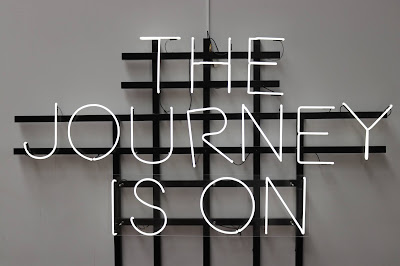Executive coaching is on the rise. It has become a go-to tool for CEO's, CFO's, and anyone looking to improve leadership performance at the top of the company. Unfortunately, finding the right calibre of coach to accelerate business performance and generate leadership outcomes can seem daunting. My advice is look for a combination of approach and experience.
The Coach’s Approach Matters
The best executive coaches are those who will approach the coaching interaction by:
Deeply understanding and caring about their client’s success
Pushing appropriately beyond their client's comfort zones
Supporting leaders in the real-world application of new behaviours
It seems obvious, but a great coach should really care about the success of the person they are coaching! Additionally, they should use multiple forms of data to provide targeted and actionable feedback. The coach should seek to deeply understand what the current environment and challenges are, as well as what motivates the individual.
Great coaches will also be bold and transparent with their feedback. In fact, the best coaches will likely make their clients a little uncomfortable at times. World-class athletes need someone to help push them to reach the next level of performance. The same should be true for the executive to coach partnership. Coaches should be able to challenge an executive in ways that other people may not. The feedback should be grounded in data, specific to the business, professional in context and should be given directly. In other words, coaches know when to push and they know when to support.
Coaches should make themselves available to their clients in real-time. Everyone is busy, but the best coaches find ways to do “spot-coaching” with their clients. They make themselves available for short calls and interactions that help support their clients in the application of new behaviours as they are happening.
Are you about to have a big Board meeting?
Trying to work on a specific partnership?
Your coach should help you apply the work you are doing together in real-life situations as you are experiencing them.
Coach Selection Criteria
Coaches should meet the following three criteria:
Be a successful real-world leader
Possess deep expertise in assessments as well as data-driven performance and development models
Understand the nuance of your business environment and provide insight
Experience shows that the “leaders as teachers” model for leadership growth works. The concept is simple: the best people to teach leadership are the ones who have been or who are leaders themselves. Taking it a step further, a great executive coach has more than academic knowledge of how to lead. Be sure to confirm your coach has proven background in leading others.
Great coaches are hungry for data and know how to gather valid information and apply it in an actionable way. A great coach wants to deeply understand the business context and strategy, leadership style preferences and motivations, emotional intelligence, problem solving ability and the perspectives of people surrounding their client. Coaches will gather valid and holistic data to determine the most important pieces of feedback to help executive’s step-up their performance. That feedback should be specifically tailored to the real-world situations and contexts that the executive is in now.
Watch out for coaches who employ a one-instrument approach to assessment. Your executive coach should be monitoring a whole dashboard of data that has been collected in a scientifically valid way to gain insight into trends and themes.
The second half of the data process is application. Too many coaches use a “one-size fits all” approach to creating development plans. In my experience, a person only makes lasting changes when they are motivated to do so. Development plans and performance improvement should be tailored specifically to the person to increase the return on coaching. A great coach will help clients identify a small set (no more than 4-5 things) of specific actionable goals that will directly benefit the client or organisation. Actionable change is accomplished through small behavioural modifications practised over time and by challenging mental models that help shift outdated paradigms.
Executive coaches should be able to provide input and specific thought partnership to their clients. Remember, this isn’t therapy. Beware of coaches who continuously ask, “how does that feel?” or “what do you think?” Great coaches put theory into action by helping clients think through issues, the political environment, and the likely outcomes of different choices within the context of specific goals. Your coach doesn’t have to have been in your exact environment, but they should have enough personal experience to relate to your situation. If they are too junior, academic, or haven’t functioned as a leader, they may steer you in the wrong direction.
Getting the Most Out of the Coaching Investment
In short, consider the combination of a coach’s experiences and approach carefully before entering into a partnership. The best coach is someone who can guide you with a solid basis of science and experience. Someone who is willing to stretch and challenge you, helping you improve your performance.
Coaches should use a combination of behavioural changes and mental mindset shifts to create higher performance and reduce derailing behaviours.
Great executive coaches are attuned to creating performance for the company as well as the individual. Included in the coaching process should be regular check-ins with the direct manager and the HR leader. These meetings should ensure that the leader is improving in the places that are most important for the success of the business.
The return on the coaching investment should be measured by both the leader’s change and the organisation's benefit of that change. Over a 6- to 12-month time frame ask, “has the leader improved in ways that have positively impacted the organisation?”
Choosing executive coaches based on approach and experience will help ensure that the answer is “yes.”

Comments
Post a Comment